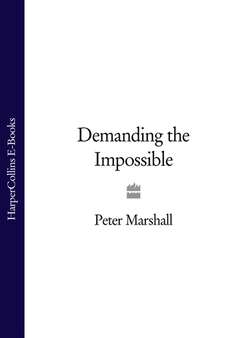Читать книгу Demanding the Impossible - Peter Marshall - Страница 57
Ralph Waldo Emerson
ОглавлениеRalph Waldo Emerson was the elder guru of the Transcendentalists of New England. After Harvard University, he entered the ministry, only to abandon it and sail to Europe, where he became a friend of Carlyle. He returned to Massachusetts and was soon installed as ‘the Sage of Concord’, attracting a literary-philosophical coterie. At Concord, he developed his philosophy – relying on intuition as the only access to reality – in prose of uncommon lyricism. Believing in the ‘divine sufficiency of the individual’, he refused to accept the inevitability or objective existence of evil. Emerson based his libertarian vision on a belief that ‘reason is potentially perfect’ in everyone and that ‘a man contains all that is needful to his government within himself.1 Conscience moreover is sacrosanct and capable of leading us to moral truth. ‘Judge for yourself … reverence yourself, he taught. An inevitable inference of his doctrine was that each man should be a State in himself; we should develop our individual character as rational and moral beings rather than set up oppressive and superfluous State institutions. Indeed, in his essay on ‘Politics’ (1845), Emerson declared as a radical Jeffersonian:
the less government we have the better – the fewer laws and the less confided power. The antidote to this abuse of formal government is the influence of private character, the growth of the Individual … To educate the wise man the State exists, and with the appearance of the wise man the State expires. The appearance of character makes the State unnecessary. The wise man is the State.2
He went on to advise Americans to ‘give up the government, without too solicitously inquiring whether roads can still be built, letters carried, and tide deeds secured when the government of force is at an end’.3 When in 1850 a fugitive slave bill was passed by Congress and supported by the President, he characteristically declared: ‘I will not obey it, by God!’ He once wrote the lines which the anarchist Benjamin Tucker was fond of quoting:
When the Church is social worth,
When the State-house the hearth,
Then the perfect state has come, —
The republican at home.
In place of government by force, Emerson proposed the popular assembly of a town meeting as the forum for decision-malting. It had served well in seventeenth-century new England, and could serve well again. But there were limits to Emerson’s libertarianism. Having freely accepted to be bound by the rules of a society, he believed that one had an obligation to obey them or else try and change them from within or withdraw. On these grounds, Emerson upheld the Harvard regulation for compulsory chapel.
Emerson’s social views were only a minor part of his Transcendental philosophy which stressed the unity of all things. Everything in this world is a microcosm of the universe and ‘the world globes itself in a drop of dew’. The universe is also ordered by a Supreme Mind or Over-Soul. Since man’s soul is identical with the Over-Soul, and human nature is divine, it follows that there is no need of external authority and tradition. Because there is a higher law in the universe, man does not need human law. The individual can therefore rely on his direct experience for guidance; hence Emerson’s motto ‘Trust thyself’.
